To be interviewed or not to be interviewed…that is the question.
In my experience, interviews for any job, no matter the field, function very much like auditions do. Hours of preparation, nerves as you wait outside the room (potentially sizing up fellow interviewees), and often only being given a small amount of time to sell yourself as the best person for the role.
It is in this way that Drama shines through once again as interdisciplinary. Relevant here is presentation technique – the way in which you carry and conduct yourself within the room – and perhaps most notably, the inherent skills of communication and teamwork – which provide perfect interview examples to any of the most commonly asked questions.

The Subject Benchmark statement emphasises:
Upon graduating from a bachelor’s in Drama, among many other skills but most relevantly to this task, the student will ‘have acquired skills in communication and presentation with the ability to articulate and communicate ideas and information in a variety of forms, as appropriate to content’ (2019:15).
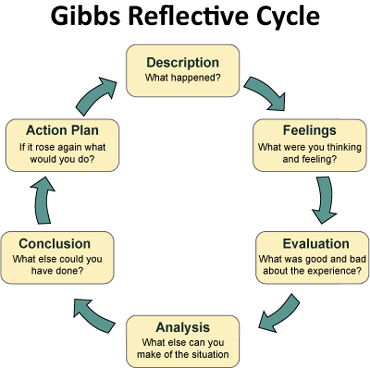
The task set was a simulated interview, with each of us taking on the role of interviewer and interviewee. And to reflect on this experience I will be using Gibbs’ Reflective Cycle, as I believe it gives a deeper analysis of it as a learning process, and perhaps most importantly in terms of this exercise and this module, as it addresses the subcategory ‘action plan’ – what steps will I take to utilise what I’ve learnt?
Description:
To prepare, we first had to research potential jobs of interest that we could interview for. Encouraged to look elsewhere than the conventional sites like Indeed, my search ranged from a Festival Director for the Dublin Fringe to a Culture Development Officer Belfast City Council. For the simulated interview however, I interviewed for the role of ‘Events Coordinator’ for Media Contacts (a recruitment agency).
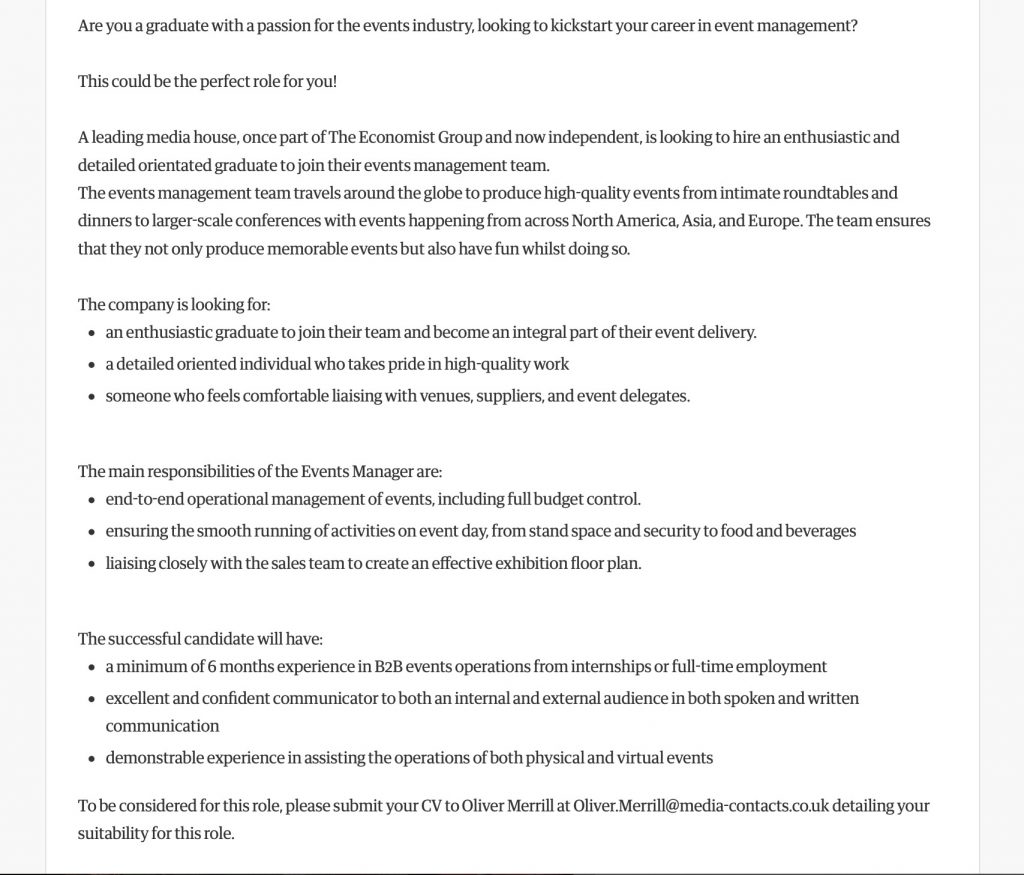
Before The interview:
To prepare, I researched the company, brainstormed examples of my own experience that I could use (subsequently updating my CV in the process!) and looked over interview technique – specifically the ‘STAR’ method.

Just before the interviews commenced, we split into 3 separate groups of three, all interviewing for our different jobs. And together, we decided upon the questions that would be asked. Like:
- Tell us a bit about yourself?
- Can you give us a recent example of a time you demonstrated effective leadership?
- What other relevant skills would you bring to the team?
We each then took it in turn to be interviewed for 15 minutes while the other two acted as the interviewers asking the questions.
Feelings:

The first thing I felt was nervous. I have had previous experience interviewing for jobs as I worked for two years after leaving school before coming to University here at Queen’s, but this was different as it was new to me to apply for a full time career when previously all my work has been the likes of zero hour contracts or hourly rated work.
But, the simulated interview was reminiscent of my most recent interview for my current job in The Lyric Theatre – a panel of two with a focus on competency based example questions. So I pushed the nerves away and focused on the preparation I had done, knowing it was something I’d done before and been successful with!
As an interviewer, it was a different feeling entirely. In that position you have the power but the feeling that struck me was an awareness that you’re not trying to trip up the person interviewing. You want them to answer to the best of their ability and that is something we could all do with remembering!
Evaluation:
What went well?
It was remarked by the interviewers that the examples I uses in my answers were good. For example, in the question about leadership skills I was able to reference my role as the President of Queen’s University Players (The Drama Society at the University), whereby I have to correspond with a plethora of different people and companies in order to organise events and make sure everything is running smoothly. Similarly, I could have used any number of examples of class group work as leading and working with others is integral to anything Drama related.
What could have gone better?
Personally, I feel that I could have prepared more – particularly on the company itself, as it was something that differed from my main area of interest (being Theatre). This would have made my answers more concise as well as allowing me to tailor them completely to what the interviewers are looking for. As James Innes says ‘fear of the unknown is powerful. The more you know about your prospective employer, the less nervous you’ll be when you turn up on the doorstep’ (Innes, 2016).
Analysis:
A thing of value to take from this experience was, in acting as the interviewer as well, it allowed for a different perspective on interviews. In formulating the questions to be asked, it makes you think of how you would want to answer them when it was your turn to be interviewed.
Similarly, I compared this experience to my interview for my placement. And looking back, I was not necessarily as prepared with answers as I would have liked and I had a slightly unpolished technique!
Conclusion:
Overall I found this a valuable exercise, particularly discussing it with the others taking part afterwards – which could always be given more time as everyone experiences things differently! And simply the more you do it the more you get used to the process and the better you’ll be!
Action Plan:
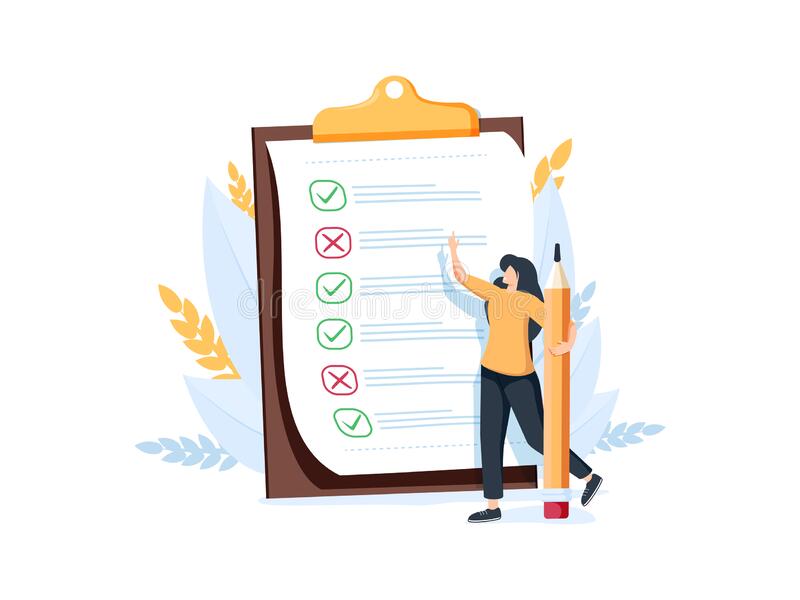
Going forward, I’m taking the understanding that I do have good and relevant experience even now that can be used in interviews to get me to the places I want to be, but to keep practicing presenting it in the right way. As interview practice can work just like acting rehearsals, and in the technique of Sanford Meisner, it’s all about: Repetition! Repetition! Repetition!
Bibliography:
QAA Membership. (2019.) Subject Benchmark Statement: Dance, Drama and Performance. [ONLINE] Available at: https://www.qaa.ac.uk/docs/qaa/subject-benchmark-statements/subject-benchmark-statement-dance-drama-and-performance.pdf?sfvrsn=32e2cb81_5. [Accessed 12 February 2023].
Innes, J. (2016) The Interview Book: How to Prepare and Perform at Your Best in Any Interview. Pearson Education LTD. [ONLINE] Available at: https://learning.oreilly.com/library/view/the-interview-book/9781292086545/?ar=[Accessed 13 February 2023].
You May Also Like
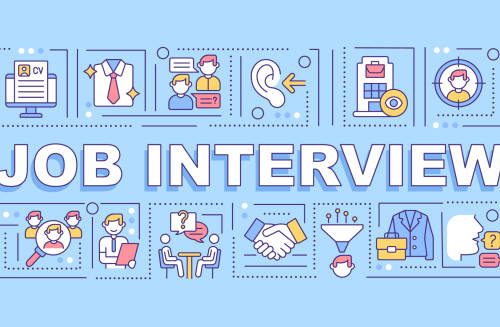
BE A S.T.A.R 🌟
14 February 2023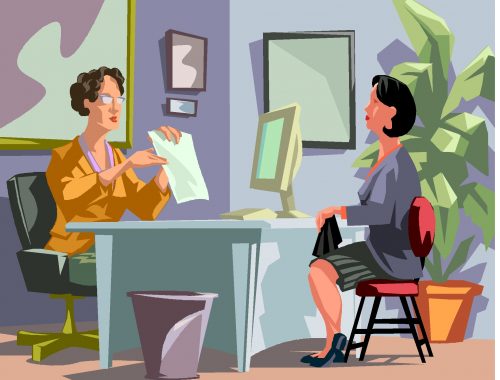
Interview a New You! – Becoming an Interview Guru
24 February 2023
